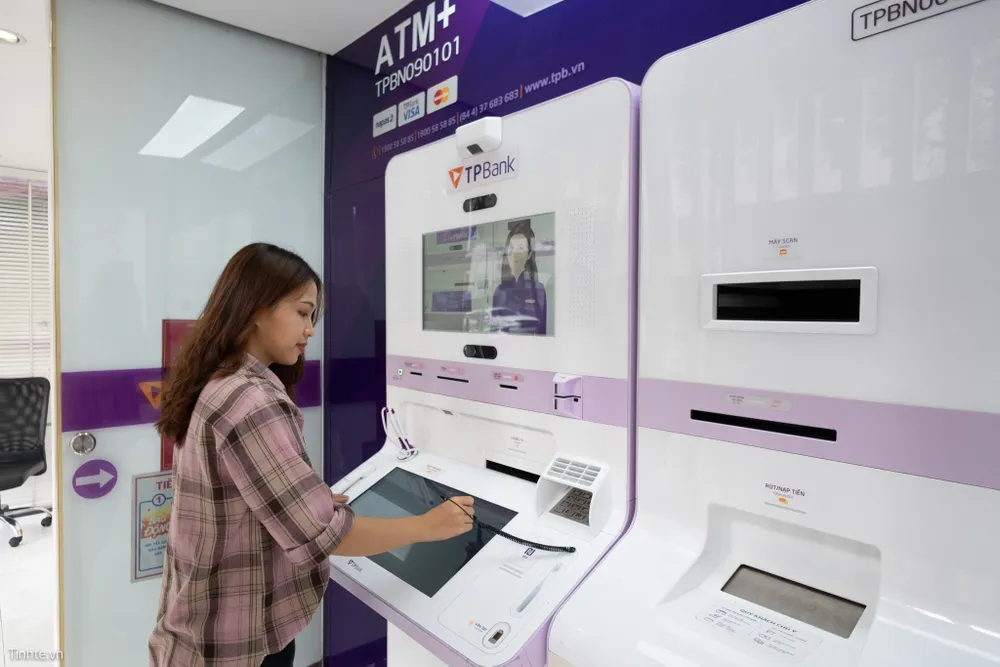
JOURNALIST: - Sir, as an AI expert and with your many years of experience working with some major US technology corporations, what is your opinion on current trends in AI and the potential and opportunities for AI development in Vietnam?
Mr. PHAM KIM CUONG: - I think that the development of AI is inevitable in Vietnam, but the problem only lies in the speed of its application here. Currently, because of the Covid-19 pandemic, many people are working remotely from home. The use of AI technology is no longer a question of "why", but "when and how". The present government has come a long way from last year and we will be able to collect more and more data as we move forward, which is a necessary condition for applying AI technology to our daily lives.
For example, when you see some woman with an unusually smooth and clear skin on the internet, you will not ask "why does she use an AI app?", but rather you ask "which AI app does she use?". When you buy a robot vacuum cleaner from Xiaomi, you don't ask "why do so many people use this robot?", but you ask "how does this robot work?". Everyone nowadays has the opportunity to access and learn about AI technology for free on the internet.
Even the travel industry is adopting AI applications very rapidly, and we too will be introducing our own AI applications as well. Luxury resorts like VinPearl are replacing the card and key system with facial recognition applications, which is much more convenient for their customers. Small and medium businesses have deployed intelligent virtual assistants to take care of customers, thereby saving a lot of overhead costs. Some hotel chains have started applying automatic price setting to maximize convenience for clients and increase monthly revenue. I believe the potential for the application of AI now is far greater and will keep growing in our country.
- Sir, what are the difficulties facing Vietnam in becoming part of 4.0 technology? What should we do to create a strong network for technology, innovation and creativity?
- In my opinion, our biggest difficulty lies is the training of human resources. We have a young generation of potential talent but which lacks in AI training. To create a strong network in this technology and for it to become more vibrant we must organize very many online and offline events, and invite foreign experts to present these events. For example, the AI festival organized by VinAI has attracted thousands of spectators from all parts of the country. Besides, we need to communicate more about the success lessons of domestic and foreign businesses. Finally, it is necessary to invest and support the State in projects such as the initiative to connect Vietnamese innovation networks organized by the Ministry of Planning and Investment.
I have worked for more than ten years in Silicon Valley in US technology corporations. I found that they let private businesses do the research and apply AI technology appropriately, thereby spearheading many other economic sectors. In the US, innovation starts with big government tax money projects such as the John Kennedy Moon flight, genetic decoding under George H. Bush or the BRAIN project in neuroscience by Barrack Obama. These projects are then put into universities for training, and in businesses for commercialization. Successful businesses pay large amounts of tax so the government can invest in innovative research projects.
- Sir, we are focusing on developing national-level database on topics like population, mapping, surveys and essential industries, but the implementation of this is proving very difficult. Do you have any recommendations to remove these hurdles?
- I believe my colleagues in universities and various departments are doing this very well. This is a project of great practical significance. I think the difficulties are not technical, but due mainly to lack of information sharing among ministries, and fragmented data. At this point, it is very important to have qualified AI human resources to fix errors and remove hurdles.
Currently we have launched a virtual assistant product for tech-housekeepers. This virtual assistant is for travelers, with two versions in English and Vietnamese. This is particularly significant in the context of the tourism industry that has been hit hard by the Covid-19 pandemic. However, during the testing period, we received many positive responses from tech-housekeepers and real estate owners. Thanks to automatic reply features, managers save one hour per day on an average, and bring enjoyable experience for users. The auto-translation app also makes the Cohost.AI start-up an essential in communicating with foreigners.
Our Cohost.AI start-up will help foreign tourists receive rare information that previously only natives knew, which will create a good image and spread a strong Vietnamese cultural identity. Our automatic price comparison feature will allow managers quick access to rates and increase sales on weekends and holidays. In coming time, we will deploy virtual switchboards with voice recognition technology to help micro entrepreneurs run their businesses much more smoothly.
- Thank you very much.




















